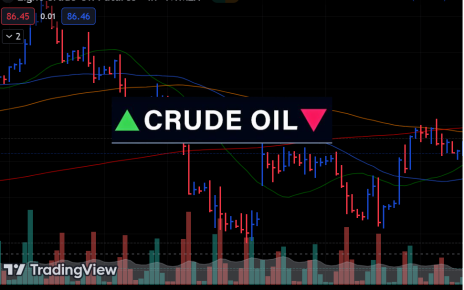- US gasoline stocks increased by 1.5 million barrels last week.
- Manufacturing data from various purchasing managers’ index surveys indicated a decline.
- Iran’s crude oil output might reach 3.4 million barrels per day.
On Wednesday, oil prices decreased by 1% due to concerns about demand amid increased US gasoline stocks and weak global manufacturing data. These concerns outweighed the positive sentiment regarding a larger-than-anticipated reduction in US crude stocks.
Last week, US gasoline stocks increased by 1.5 million barrels, contrary to analyst predictions of an 888,000 barrel decrease. Meanwhile, according to the Energy Information Administration, US crude inventories declined by 6.1 million barrels in the week ending on August 18. This decrease was due to strong refining activity and high export levels.
“The EIA data showed a mix of results,” explained John Kilduff, a partner at Again Capital. Kilduff pointed out that despite refiners maintaining a high operational pace and acquiring oil inventories, the demand for fuel remained weak due to challenging economic conditions.
The global economic outlook appeared grim as manufacturing data from various purchasing managers’ index (PMI) surveys indicated a decline. Japan’s factory activity shrank for the third consecutive month in August. The Eurozone also experienced a greater-than-expected decline in business activity, particularly in Germany.
The UK’s economy seemed poised to contract in the current quarter, raising concerns of a potential recession. Meanwhile, US business activity neared stagnation in August, with growth at its lowest since February.
US business activity (Source: S&P Global)
S&P Global reported that its preliminary US Composite PMI index, which monitors manufacturing and service sectors, declined to a score of 50.4 in August from 52 in July. This marked the most significant decrease since November 2022.
Additionally, the focus shifted to the upcoming meeting in Jackson Hole, Wyoming, where Federal Reserve officials and policymakers from the European Central Bank (ECB), the Bank of England, and the Bank of Japan will convene. Investors now expect central banks to hold interest rates at their current levels for a more extended period instead of raising them.
On the supply side, despite ongoing US sanctions, Iran’s oil minister stated that the country’s crude oil output would reach 3.4 million barrels per day (bpd) by the end of September. Meanwhile, five analysts say Saudi Arabia might extend a voluntary oil cut of 1 million barrels daily into October. This reflects the kingdom’s aim to reduce global inventories amidst supply uncertainties.





